KATHMANDU: Dr Mohammad Tarikul Islam is an Associate Professor of Government and Politics at Jahangirnagar University in Bangladesh.
He was the Visiting Research Fellow at the University of Oxford, the United Kingdom in 2018. Professor Islam is also the Visiting Scholar of the University of Cambridge.
Prior to joining University in 2014, Dr Islam was serving United Nations Development Programme Bangladesh for a period of seven years in different capacities.
Professor Islam has gained hands-on experiences while joining a brief mission at the UNDP country office in Indonesia, Nepal and China.
He is also a regular contributor to the South Asia Blog of London School of Economics and Political Science (LSE), UK, and the Institute of South Asian Studies, National University of Singapore.
He has more than 30 publications to his credit mostly appeared in the international outlet (Routledge, Elsevier, SAGE, Oxford, Springer, BJECC, and so on).
His edited book ‘Human Security, Peace and Development: South Asian Perspective’ was published from Kolkata, India in July 2018. He has participated in a number of lectures, seminars and workshops at Cambridge, LSE, SOAS, Oxford and different universities in India and Nepal.
Prof. Islam acts as Research Guide to different courses (SSC and ACAD) at the Bangladesh Public Administration Training Centre.
His article regularly appears in the Daily Star, the Daily Independent, the Financial Express, the South Asia Monitor (India) and Khabarhub (Nepal).
His forthcoming book is ‘Local Government in Bangladesh: Contemporary Issues and Challenges’ from the Routledge. Professor Islam is currently working with two young scholars from the University of Oxford and the University of Leeds in an edited book “COVID-19 in South Asia: Its Impact on Society, Economics and Politics”.
Dr. Islam is the founder and administrator of the Local Government-Centre for Social Harmony and Development.
Khabarhub talked to Dr Tarikul on Citizen’s Participation in Local Government in South Asia. Excerpts
Why should citizens participate in the local government in rural Bangladesh?
Citizen’s participation is widely used in the discourse of development for the last few decades. Meaningful participation has come to be recognized as an absolute imperative for development.
Since rural development is a people’s program, it is essential that people should take an active part in rural development activities.
As an essential pillar of a democratic and public service transformation, Local government is where solving the problems of democratic development has to start.
One important way of strengthening democratic institutions without weakening the executive is to ensure the active participation of the citizen in the rural development process by the way of making the standing committee of the local government effective.
Standing committees allow the members to perform numerous functions that otherwise might not be conducted at all.
They help organizations to reduce their workload and perform different functions more efficiently with the formulation of rational decisions and providing an important means of oversight on the function of governing bodies.
For instance, Union Parishad is the lowest tier local government institution working for a long time for providing service to citizens at their doorstep.
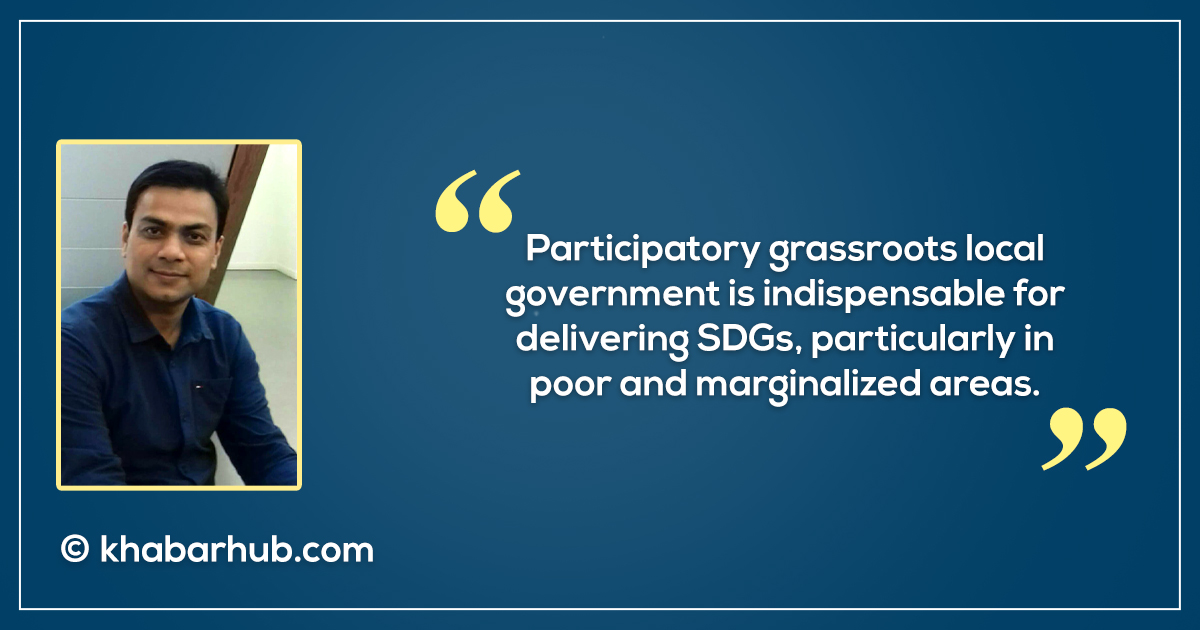
It is the only institution to ensure good governance, development planning, implementation, transparency, and accountability for rural areas in Bangladesh.
To what extent, can the local government standing committees augment citizen’s participation in rural development?
By and large, standing committees are small groups of representatives who are assigned, on either a temporary or a permanent basis, to examine matters more closely than could the institution.
Standing committee s allow the representatives to perform simultaneously numerous important functions that otherwise might not be conducted at all.
Since standing committee s operate under less formal rules standing committee members are able to discuss issues informally and to develop relationships with the standing committee colleagues who represent different interests.
That creates a collegial environment in which compromises on small matters and technical improvements in overall functioning can be agreed upon expeditiously.
The latest Local Government (UP) Act 2009 has created an opportunity to ensure greater participation of the people in the process of development planning and implementation.
According to the UP Act, 2009, there is a provision of 13 standing committees in the UP to support the Parishad in ensuring transparency, accountability, and people’s participation in planning and implementing for ensuring better governance and service.
We must strive to foster dialogue with all stakeholders through the Local 2030 initiative, and to mobilize a multi-level coalition around localization, which can accelerate our efforts while setting enabling national frameworks that empower local actors to develop and lead their own strategies aligned with the SDGs.
As per the UP act, each UP is supposed to form at least 13 standing committees on different issues like education, health, family planning, social welfare and disaster management, and agriculture, fisheries and livestock.
The standing committee, comprising elected representatives from the Parishads, civil society members, socially respected persons and women representatives of that locality, is entitled to assist the UP for ensuring better services and resolving different problems.
For instance, the standing committee helps drive decision and provide an important means of oversight on the function of governing bodies.
However, these standing committee s are not active in about 80 percent of the Parishads because the elected chairmen and other members are not properly aware and interested in its functions and jurisdictions.
The reasons behind the sluggish performance of standing committee s may be attributed to a number of factors such as lack of initiatives of UP members, lack of pressure from the common people, lack of political pressure, lack of skills required for planning and implementing development programs at the local level, no specific terms of references of the standing committee, unwillingness on the part of UP Chairman to delegate authority and even existence of standing committee or existence only on paper.
Member secretary is not playing the most important role in the functioning of the standing committee as they are setting agendas and making communication with the chair and other members.
The essence of the standing committee system is still unrevealed to most of the standing committee members. Schemes recommended through standing committee meetings do not get urgency in the regular meeting of both Parishad.
The effectiveness of these standing committees should not be predictable unless the sense of ownership creates among the standing committee members.
Quorum in the standing committee meeting has come out as a strong barrier in the way of functioning of the standing committee.
Since the participation of members has not been made obligatory by the law, most of the members of the standing committee show their reluctance to attend standing committee meetings.
Moreover, the issue of functioning of the standing committee has not yet received enough prominence among different actors of the UP of non-intervention areas that could motivate members to actively participate in this process.
Why is the concept of Sustainable Development so important in rural Bangladesh?
Sustainable development can be viewed as an integrated agenda and fundamental principle that endeavors to provide solutions to economic, social and environmental challenges.
The 2030 Agenda emphasizes the need for an inclusive and localized approach to the Sustainable Development Goals (SDGs). The pledge to leave no one behind is embedded at the heart of the Sustainable Development Goals.
Bangladesh’s rural economy, and specifically agriculture, have been the powerful driver of poverty reduction in Bangladesh since 2000.
Investment in and expansion of the rural non-farm enterprises is a parallel priority of the Government of Bangladesh.
Spanning from the day-to-day life to the broader sectors of agriculture and other economic activities, the Bangladesh villages have long entered the phase of a revolution.
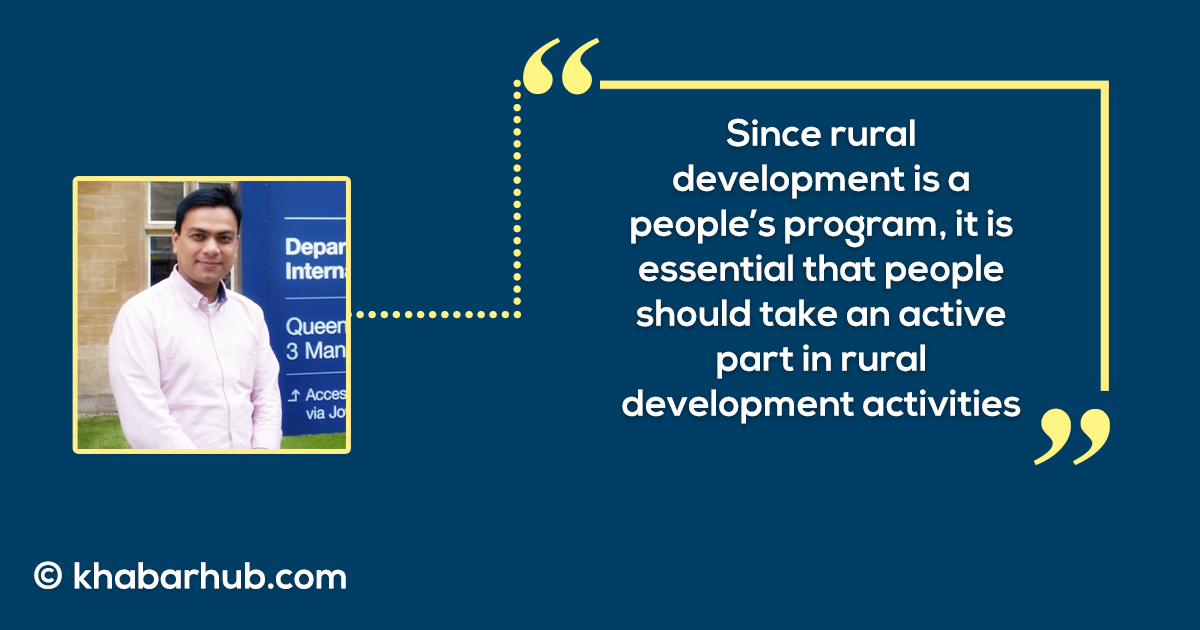
Localizing SDGs for the sake of qualitative change in the lives and livelihood of the village dwellers (above 62% of the total population in Bangladesh) is essential.
Can local government play an active role in attaining Sustainable Rural Development?
There is growing awareness, recognition and acknowledgment by the international development community and national governments that the local sphere of government is in the best position to facilitate the mobilization of local development stakeholders, notably the NGO and private sectors, local communities, and national and international organizations for attaining inclusive sustainable development within their respective localities.
Participatory grassroots local government is indispensable for delivering SDGs, particularly in poor and marginalized areas.
Local government not only ensures improving access to basic services but provides an effective platform for the poor, peasants, workers and women to participate in the decision making and development process undertaken for them.
Strengthening local government in rural Bangladesh is perhaps the only viable solution by which government can translate policies into inclusive development and prosperity.
The endeavor of the Bangladesh government toward the “localization” of global agendas is progressively expanding to the grassroots level.
How can we make local government more participatory for the sake of Sustainable Rural Development?
Acknowledging the vital role of local government in the realization of sustainable development will enable us to mobilize local stakeholders and to create new partnerships, based on a common understanding of our shared humanity.
For overcoming hindrance that is creating due to lack of proper understanding and knowledge about different aspects of the standing committee, the coverage of the training needs to be increased.
Local government must have the means and the capacity to improve administration, anticipate demands, plan and implement solutions.
The main intention of the training would be to provide them a better understanding of the importance of the standing committee and increase their capacity to deal with issues relating to the functioning of the standing committee.
In consequence, the effective functioning of a standing committee may offer a number of benefits for the effective functioning of Union Parishad.
First, the standing committee allows informal discussion among members that is a prerequisite for the development of relationships among members belonging to different political beliefs.
Meetings of standing committees act as the forum for arriving at cooperation and settlement. Endurance, steadiness and sequential knowledge are to be guaranteed by the standing committee members.
Lastly, to uphold the spirit of transparency and accountability of the local government bodies, there is no alternative other than reinforcing the standing committee.
Local government must have the means and the capacity to improve administration, anticipate demands, plan and implement solutions.
To upscale efforts, we need greater cooperation and national and international coordination mechanisms, as well as enough resources to make this happen.
We will need to ensure that citizens are involved in the decisions that affect their future.
“Effective, accountable and transparent institutions” and “responsive, inclusive, participatory and representative decision-making at all levels” require a clear institutional framework, reinforced management and planning capacities, participatory mechanisms and regular financial negotiations between all levels of government and local communities to define priorities and plan of action.
We must strive to foster dialogue with all stakeholders through the Local 2030 initiative, and to mobilize a multi-level coalition around localization, which can accelerate our efforts while setting enabling national frameworks that empower local actors to develop and lead their own strategies aligned with the SDGs.


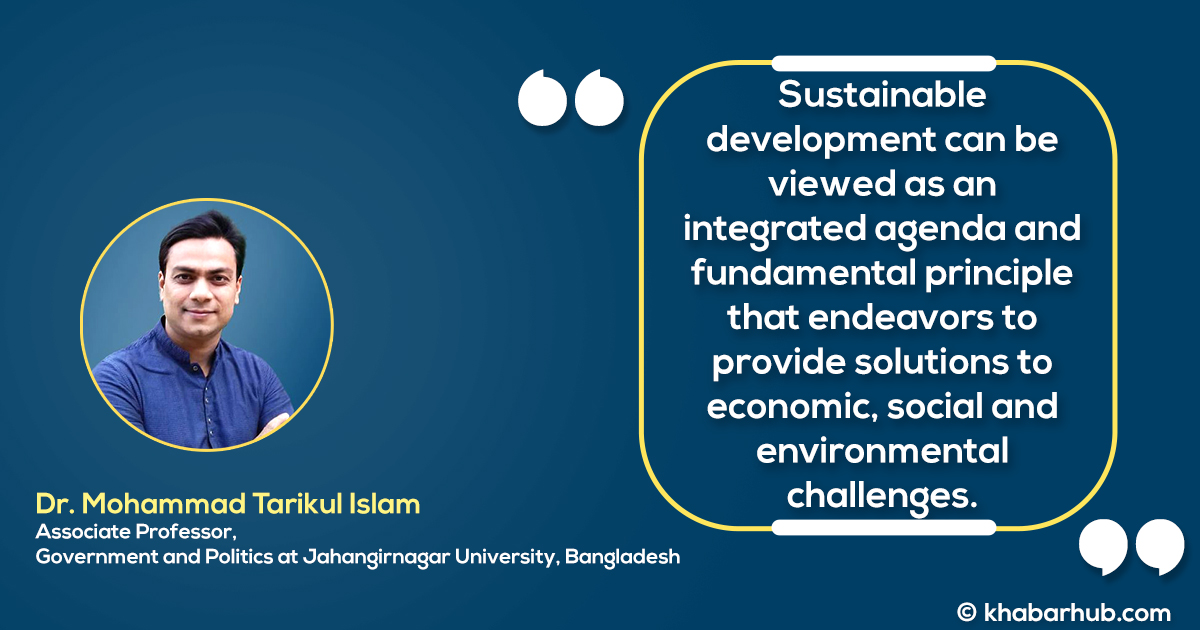


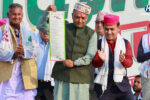
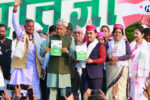

Comment